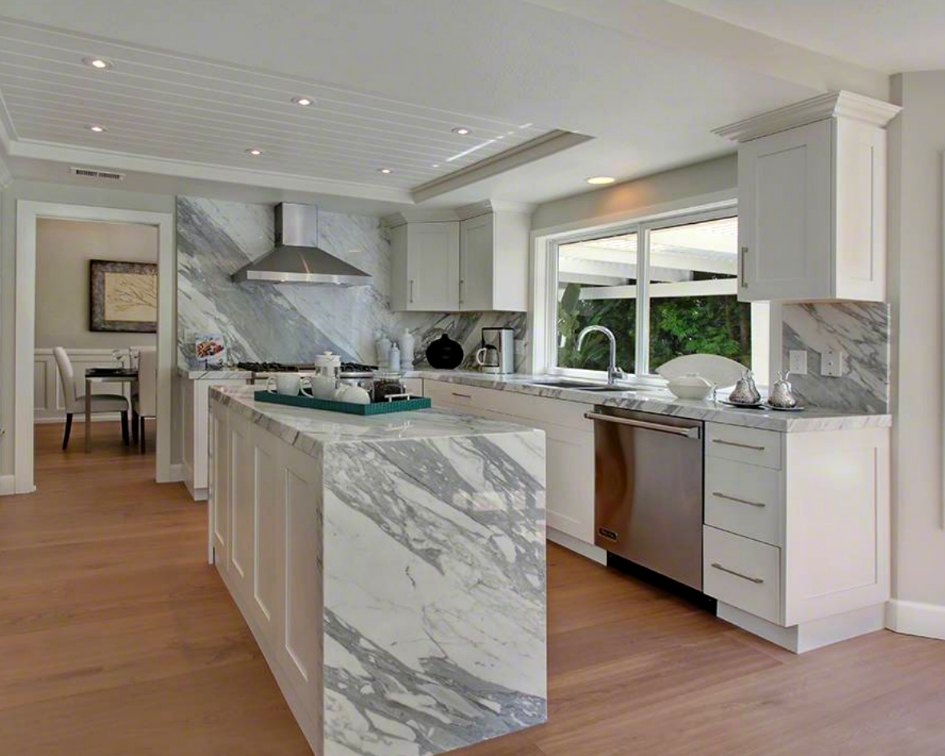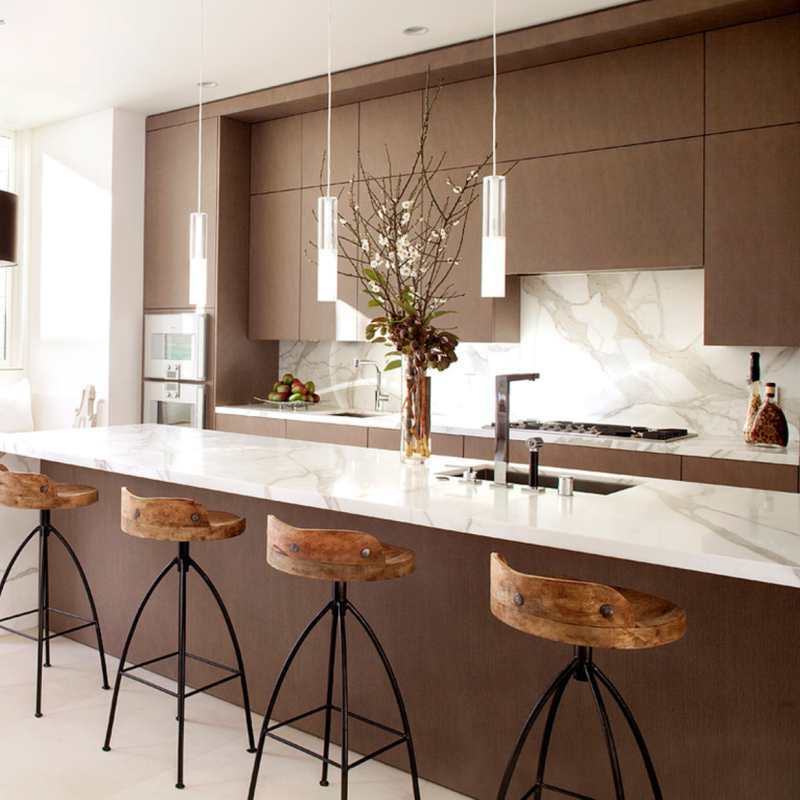What Type Of Sealer Should You Choose For Marble Countertops?
November 27, 2018
If you have marble countertops, it is important to keep them sealed, and with the right kind of sealer. But with all of the different types of sealers out there, it can become overwhelming trying to figure out which is best for your needs when researching how to care for marble countertops. Just stay focused on your goal to keep your countertops looking as beautiful as the day they were installed, and let us do the work of giving you the specs on different types of sealers, right here.
The degree of daily wear and tear and cleaning routine your marble countertop gets will determine how many times each year you will need to reseal it. For example, your kitchen countertops may require resealing twice a year, while the countertop in your guest bathroom may only require an annual sealing. However, a good rule of thumb is that when your countertop begins to lose its luster or you notice that water is being absorbed before you can wipe it up—chances are your countertop needs sealing.
The next question is: What kind of sealer is right for my marble? Well, today, there are a number of different kinds of sealers—each with their own benefits and purposes.
Water-based sealers:
Water-based sealers are low-VOC and produce little odor or noxious fumes in the air after application. They work by moving into the stone and filling up the open pores that are prone to staining. Applying water-based sealants on countertops and tiles is also faster and easier than applying a solvent-based sealant.
Water-based sealers have larger molecules that can permeate naturally porous stones like marble well, filling the pores beautifully and protecting your natural stone from stains. However, a water-based sealer may not be the best option for outdoor countertops or bar tops, or for those surfaces fabricated out of denser stones like granite.
Solvent-based sealers:
Solvent-based sealers are considered high-VOC and can leave noxious smells and toxins in the air after application. In comparison, water-based sealers are considered more environmentally-friendly; however, solvent-based sealers do have their place.
Solvent-based sealers are made up of smaller molecules that can move more easily into denser stones like granite and quartzite. This type of sealer is also generally more durable and may last longer than a water-based sealer. It penetrates deeply and offers a wide spectrum of protection.
VOCs
Let’s talk a moment about VOCs—that is, “volatile organic compounds.” These are toxins released from certain chemicals, including solvents, paints, and even the dyes used in carpeting. Yes, a solvent-based sealer creates a noxious fume when applied, so it is important to take that into consideration if you have someone in your household with a breathing problem such as asthma or COPD.
It will be important in the hours and even days after using a high-VOC sealant to keep air moving freely through the house. Whenever possible, keep doors and windows open, and use your stove’s vent hood or bathroom’s exhaust fan to pull as much air out as possible. However, after a few hours or days, depending on how long the sealant takes to dry completely, you can go back to normal.
 Featured: Calacatta Marble
Featured: Calacatta Marble
Now, let’s look how your marble’s finish influences your decision-making. Polished marble countertops like Calacatta marble are significantly less absorbent than matte or honed finish. This is because as the stone is polished, many of the surface pores are removed. For polished marble, water-based sealers may be just what you need whereas a honed-finished marble may be better protected with a solvent-based sealer.
Remember, marble countertops are an investment that when properly maintained and sealed, can withstand a lifetime of holiday meals, cocktail parties, chili cook-offs, and science projects. The key is to choose the right sealer for your stone. Talk to your fabricator and get their recommendations and voice any concerns you may have. And, if you have different natural stones in your home, or even different colors of marble or different finishes, you may need to purchase a specific sealer for each one
